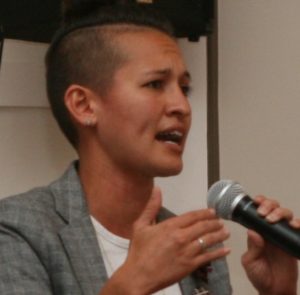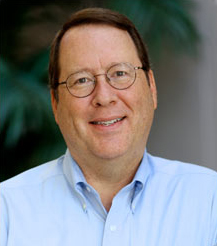Twelve former moderators of the Cooperative Baptist Fellowship are among more than 500 names attached to an online petition urging current leaders to drop the organization’s 17-year-old ban against hiring LGBT people.
The petition — delivered this week to a committee in the process of implementing an “Illumination Project” focused initially on competing views within the 1,800-church Fellowship about human sexuality — calls the ban “discriminatory” and an infringement on autonomy of the local church “to seek the mind of Christ regarding sexual and gender diversity.”
“It also disenfranchises one particular social minority,” the statement says, calling into question CBF’s stated commitments to “offer radical hospitality” and “transform oppressive structures.”
Lead signatory Amelia Markham, a member of CBF-affiliated Park Avenue Baptist Church in Atlanta, said the petition and cover letter are the brainchild of a small team in response to comments by members of the Illumination Project committee at this summer’s CBF General Assembly saying they were open to receiving more feedback about how various constituencies within the Fellowship view the hiring policy and other issues of LGBTQ inclusion.
“This was our grassroots way of demonstrating that even without theological consensus on LGBTQ inclusion, the hiring/firing policy is something that hundreds of folks find out of step with the spirit and DNA of the Fellowship,” said Markham, Atlanta organizer for the Reformation Project, a Christian grassroots organization promoting LGBT inclusion and seeking to reform church teaching on sexual orientation and gender identity.
Signers include five of the first six CBF moderators — John Hewett, Patricia Ayres, Hardy Clemons, Pat Anderson and Lavonn Brown. The third moderator, Carolyn Crumpler, is deceased.
Other names include Phill Martin, moderator in 2002-2003, and his immediate successors Cynthia Holmes, Bob Setzer and Joy Yee. Other past moderators in the list include Harriet Harral (2007–2008) and Jack Glasgow (2008-2009). The most recent to hold office, Christy McMillan Goodwin, presided at the CBF General Assembly in 2011.
The current policy disallowing the expenditure of funds for organizations that “condone, advocate or affirm homosexual practice” or the “purposeful” hiring of non-celibate gays as CBF staff or missionaries was adopted in 2000 in part as a response to outside critics trying to paint the moderate Baptist group as radically pro-gay and outside the evangelical mainstream.
“Today the truths of science, voices of reason, witness of experience and a fresh hearing of Scripture all compel us to live a wider mercy and extend gospel justice to those excluded by their sexual or gender identity,” the petition says.
“Because of the cherished Baptist principles of soul-competency and local-church autonomy, all CBF Baptists can remain in fellowship while we seek clarity on this issue and other deep mysteries of our faith,” the statement concludes. “As followers of Christ, we know that such a journey is best made together. It is our deepest hope that, by God’s grace and with God’s peace, the Fellowship becomes a ‘beloved community’ for all God’s children.”
The Illumination Project, authorized by the CBF Governing Board in 2106, is currently searching for a way to do what few if any mainstream religious bodies have been able to do — disagree about homosexuality without splitting — but CBF leaders anticipate the process will become a resource to promote “a big tent culture” regarding other hot-button controversies that divide society, denominations and local churches.
Charlie Fuller, chair of the Illumination Project committee, said the study group has asked all people of the CBF to share their stories and thoughts about the discernment process.
“We’ve received these through emails, letters, phone calls, listening sessions and structured interviews,” said Fuller, executive pastor at First Baptist Church in Washington, D.C. “We’re glad to receive them also through this petition and will add it to our collected input.”


